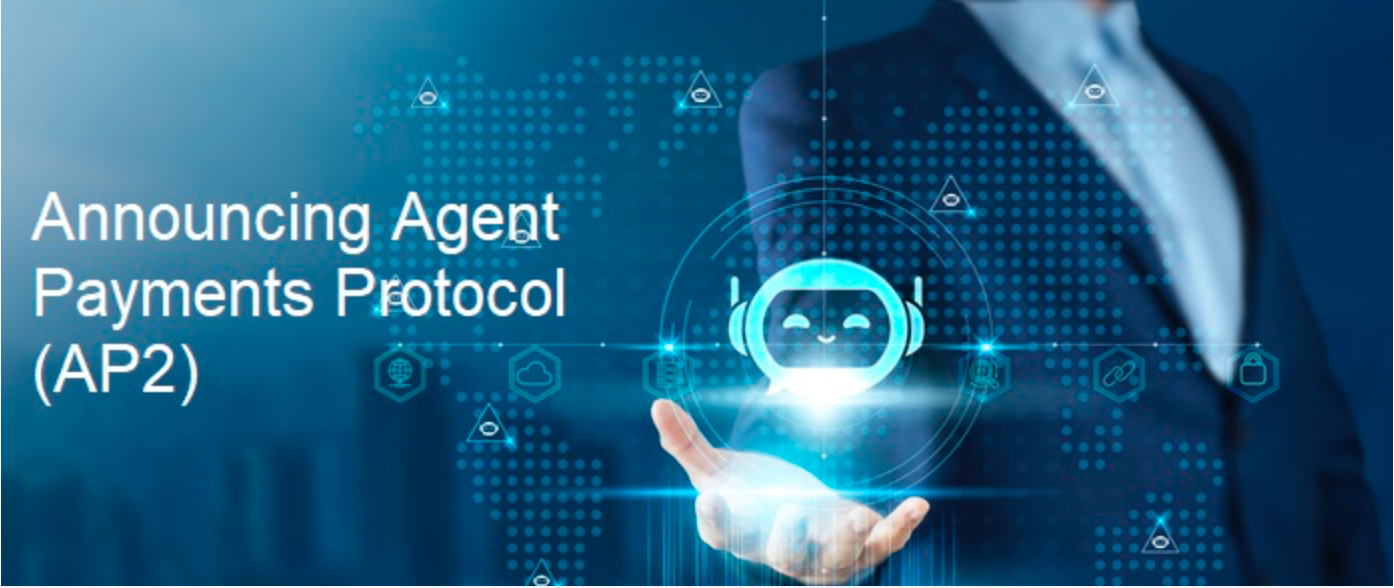Google Cloud has taken a bold step toward shaping the future of digital commerce with the launch of the Agent Payments Protocol (AP2), an open framework designed to secure and streamline AI agent-led transactions across platforms.
Developed in collaboration with more than 60 leading organizations worldwide, AP2 promises to establish a new global standard for trust, accountability, and interoperability in payments — at a time when AI-driven agents are poised to transform how consumers and businesses interact.

Among the early collaborators are key Southeast Asia players such as Airwallex, Fiuu, Garena, Lazada, Manus, Razer, Shopee, and ZALORA, alongside global heavyweights including Adyen, American Express, Ant International, Coinbase, JCB, Mastercard, MetaMask, PayPal, Trip.com, UnionPay International, and Worldpay.
Why a new protocol is needed
Today’s payment systems were built on a simple assumption: a human clicks “buy” on a trusted surface. But as AI agents gain autonomy to transact on behalf of users, new risks emerge around authorization, authenticity, and accountability.
“AP2 is an open, shared protocol that provides a common language for secure, compliant transactions between agents and merchants,” explained Rao Surapaneni, Vice President and General Manager of Business Applications Platform at Google Cloud. “It prevents ecosystem fragmentation while supporting diverse payment types — from cards and real-time bank transfers to stablecoins.”

By creating a payment-agnostic framework, AP2 ensures users, merchants, and financial institutions can interact with confidence, reducing fraud risks and providing an auditable trail for every transaction.
How AP2 works: Mandates and verifiable credentials
At the heart of AP2 is the concept of Mandates — tamper-proof, cryptographically signed digital contracts that capture a user’s intent and serve as evidence for every transaction.
- For real-time purchases (human present), Mandates record user instructions from intent (“Find me running shoes”) through to final approval of a cart, creating a secure link between choice and payment.
- For delegated tasks (human not present), such as buying tickets the moment they go on sale, pre-signed Mandates define rules like price limits or timing. These allow agents to act autonomously while preserving accountability.

This chain of verifiable credentials provides what Surapaneni calls a “non-repudiable audit trail” — a transparent sequence that answers who authorized what, ensuring trust on all sides.
Industry voices: Why it matters
The initiative is drawing broad industry support.
- Jacob Dai, CTO of Airwallex, called AP2 “a critical step forward in building a secure, interoperable ecosystem for agentic AI payments.”
- Eng Sheng Guan, CEO of Fiuu, noted that open protocols like AP2 advance “trust and inclusive payment ecosystems.”
- Pablo Fourez, CDO of Mastercard, said: “Together, we’re playing an essential role in securing the payments ecosystem, ensuring that trust and safety remain at the core of every transaction.”
- David Chen, CPO of Shopee, emphasized its potential to transform e-commerce, stating: “At Shopee, we see immense potential for agents to transform e-commerce, and believe that industry protocols such as Google’s AP2 will be critical to enabling this future.”
- MetaMask’s Marco De Rossi highlighted its role in bridging Web3 payments with mainstream finance, saying: “Blockchains are the natural payment layer for agents, and Ethereum will be the backbone of this. With AP2 and x402, MetaMask will deliver maximum interoperability for developers and will enable users to pay agents.”
Unlocking new commerce models

Google showcased how AP2 could unlock entirely new shopping experiences:
- Smarter shopping — Agents monitoring product variants and executing purchases the moment conditions are met.
- Personalized offers — Merchants tailoring bundles in real time based on user intent.
- Coordinated tasks — Agents booking flights, hotels, and services simultaneously within a set budget.
Beyond traditional payments, AP2 also supports crypto and Web3 ecosystems. In partnership with Coinbase, Ethereum Foundation, and MetaMask, Google introduced the A2A x402 extension to enable secure agent-based cryptocurrency transactions.
A Southeast Asia opportunity
The launch carries particular weight in Southeast Asia, where e-commerce, digital travel, food delivery, and online media reached US$263 billion in gross merchandise value in 2024, according to Google. Digital payments in the region are projected to surpass US$2.1 trillion by 2030.
“AP2 provides a trusted foundation to fuel a new era of AI-driven commerce,” said Mark Micallef, Managing Director, Southeast Asia, Google Cloud. “The opportunities for networks, issuers, merchants, and users to innovate on top of this protocol are immense.”
What’s next
Google has published the full technical specification of AP2 on its public GitHub repository, inviting the payments and technology community to collaborate on its evolution. Partners are also expected to deploy new agent-led experiences through Google Cloud’s AI Agent Marketplace, from e-commerce to enterprise procurement.
But for now, AP2 marks a milestone: the creation of a common foundation for the emerging agent economy — one where AI doesn’t just recommend products but securely executes payments, reshaping the future of commerce.






